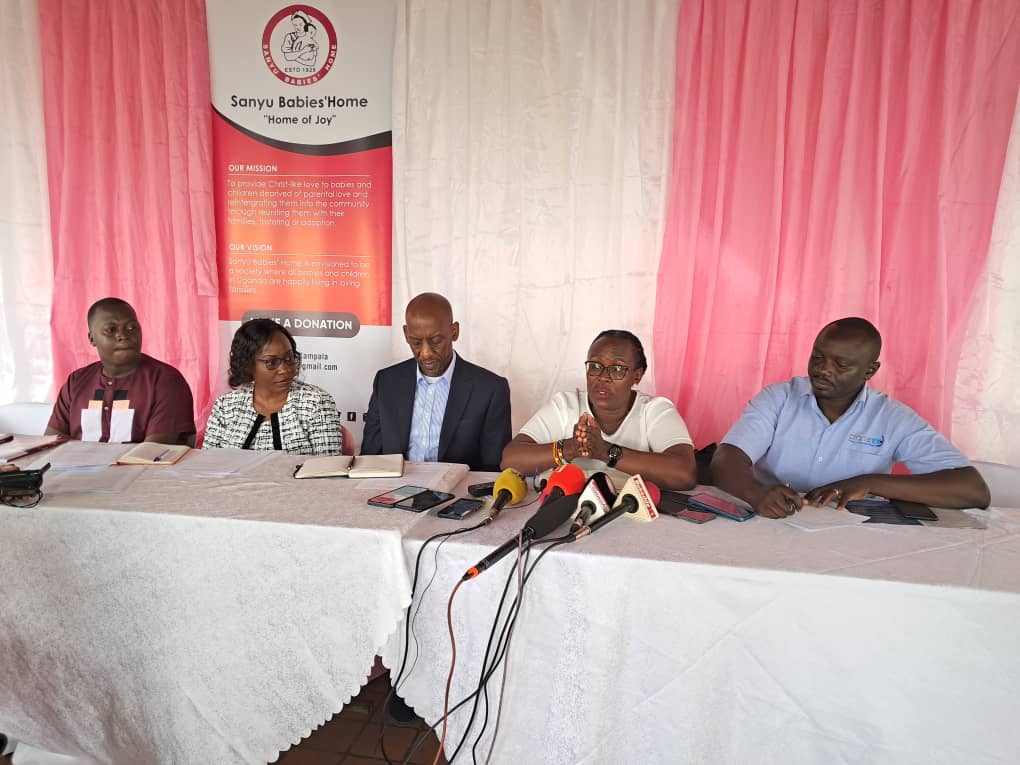Understanding your rights in succession and inheritance in Uganda
“Man eateth where he worketh,” this is a common saying easily transcribed to mean one can only reap what they have sowed. We all want to own a few assets at one time in life and people do achieve this in several ways. Some work for the assets, others are born to own the assets, and a few will live to inherit the assets. Inheritance happens to be one of the free means people acquire property.
In the daily struggles of man, one of the biggest and commonest concerns has always been the security if the assets earned. Q, X or Y will buy land today and he has to sit down and devise a means to have it registered in such a manner that his current concubine, legal wife or children will have no conflict upon his demise over the same land. Some men hide their assets from their wives and relatives out of fear that the same maybe scrambled for, and sometimes due to greed.
Keep Reading
Death is inevitable, and the aftermath of it is always the cause for havoc among most of the families. The conflicts in the estates of deceased persons have been the core behind the millions of Administration and probate causes filed in the Family courts daily.
When man dies he either dies testate or intestate. A person dies testate when he or she wrote and left a valid will or testament concerning the distribution of his or her property upon their death. Wills are usually implemented by an executor, being a person appointed within the will by the deceased person to carry on the distribution and management of the estate.
Although, where the will does not mention an executor the Administrator General will usually upon application appoint an administrator to implement the will of the deceased. The Administrator General’s office also has the mandate to administer the estate of the deceased, as long as it is administered in accordance with the terms of the will.
On the other hand, a person dies intestate when they do not leave a testament or will for the distribution of his estate. The Succession Act Cap 162, states that a person dies intestate in respect of all property which has not been disposed of by a valid testamentary disposition.
There is another School of thought which argues that a person can only be considered to have died either testate or intestate if they owned any property worth inheritance or distribution after their demise. This is so because the law and theory of succession and inheritance only concerns itself with the distribution and management of property of a deceased person. Therefore a person who owned no property while living maybe considered to have died neither testate nor intestate.
In testate succession, there is usually less controversy compared to intestate succession. The deceased’s will usually takes precedence. According to the legal framework governing succession, a few general rules guiding testate succession include;
- For one to make a will, they must be of majority age and of sound mind.
- The property disposed of in the will must legally belong to the deceased person.
- The will must be attested/witnessed by at least two adults of sound mind
- A beneficiary in the will cannot witness/attest to the will else the bequest to the beneficiary is rendered void but the will remains valid.
- The testator must make reasonable provision for all their dependants in the will and there is no reason whatsoever that can make it legal for a deceased person not to make provision for any of their dependants for instance children in their will. Be it indiscipline, disability, legitimacy of the child or any other reason.
- All children are considered children under the law if succession whether legitimate, illegitimate or adopted.
Any deviation from the above, maybe ground enough for a discontented party to challenge the validity of the will in the competent courts of law.
When it comes to intestate succession, where no will exists, the family of the deceased person will convene a family meeting and select a person or persons who will apply for a certificate of No Objection at the office of the Administrator General to administer the estate of the deceased and later a grant of letters of administration in a competent court.
The right person to apply for letters of administration is usually the widow or widower of the deceased person. Case law has gradually evolved and now dictates a hierarchy for persons that can apply for letters of administration. First in rank is usually the widow(er), the children of the deceased especially the customary heir, and then any other person considered rightful according to the family.
The true meaning of widow has for a long time been a point of controversy among the Ugandan community due the common existence of cohabitation in the name of marriage. It is true that very many Ugandans live as couples yet they have never celebrated any legal form of marriage, this is referred to as cohabitation, in other jurisdictions it is known as Common law marriages.
A widow is the legal wife of the deceased person. The Succession Act Cap 162 of 1906 defines a wife to mean a person who at the time of the intestate’s death was validly married to the deceased according to the laws of Uganda. Courts have also pronounced themselves on the matter.
In the matter of Christine Male & Anor Vs Sylvia Mary Namanda & Anor (1982) HCB 140, the deceased died intestate leaving behind 12 children from 4 women. The first plaintiff had 3 children while the defendant had 4 children. The defendant and her mother in law argued that the plaintiff having only 3 children would not adequately care for other children and defendant was a guarantor of the deceased’s loan and hence entitled to obtain the grant for letters of administration to administer the deceased’s estate.
Court held that the first plaintiff as a person who was legally and validly married was the only one who would apply for letters of administration. And further that, “the defendant had never been validly married to the deceased; the mere fact that somebody had children with a woman does not make her a wife in the meaning of law or entitle her to have a share in the estate of the deceased, or accord her a right to apply for letters of administration to administer the estate of the deceased person.
In conclusion, Succession and inheritance Law in Uganda only recognizes a wife /widow if she has been legally married under the laws of the Uganda. Cohabitation is only an interparty domestic arrangement that is not recognized by the laws of Uganda hence does not confer the status of marriage upon the cohabiters regardless of how long they have been cohabiting or how many children they have. Property rights and succession are guided by the existing legal framework as enlisted above.
The writer Asiimire Isabel is is a Legal Associate at PACEADVOCATES



















